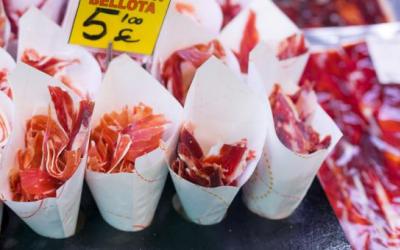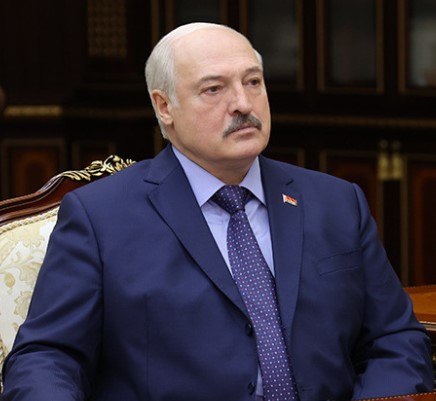Algerian doubling of Russian agricultural products: points of growth

The events, organized by the Federal Center "Agroexport" and the Russian Ministry of Agriculture, brought together leading Russian food manufacturing companies, as well as more than 70 Algerian importers and trading companies. The business mission took place from November 14 to 16.
DIRECTOR of the Department of International Cooperation and Development of EXPORT of Agricultural Products of the Ministry of Agriculture of the Russian Federation Maxim Markovich noted at the opening ceremony that interaction between RUSSIA and Algeria has strengthened significantly in recent years. Thanks to this, agreements were reached, including on phytosanitary and veterinary certificates, which directly affect the volume of trade turnover of agricultural products.
“Since 2021, Russia and Algeria have been consistently eliminating barriers to bilateral trade. Thus, about a year ago, phytosanitary barriers to the export of Russian wheat were removed, and at the end of October 2023, an agreement on cooperation in the field of veterinary medicine was signed, which opens up the possibility of exporting Russian MEAT and dairy products to Algeria,” Markovich said.
Director of the Veterinary Service Directorate of the Ministry of Agriculture and Rural Development of Algeria, Feyrouz Bendahmane, welcomed the mission participants and also expressed hope that direct contacts between Russian and Algerian companies will lead to the conclusion of new contracts and projects.
Russian Trade Representative in Algeria Ivan Nalich noted that Algeria is of great interest to Russian suppliers of agricultural products. The main volumes of Russian exports currently come from grains and vegetable oils, however, Algeria is also one of the largest importers of MILK powder in the world. Supplies of meat, meat products, confectionery and other products from Russia are of interest to the Algerian market.
“From 2018 to 2022, exports of agricultural products from Russia to Algeria increased 4 times and in the future may exceed $1.5 billion . Today these are mainly grain and oil and fat products , but potentially the areas of our cooperation are much broader. In particular, Russia is ready to diversify exports to the North African country through dairy and meat products, sunflower and rapeseed oil, fish and seafood, and food processing products,” said Dmitry Krasnov, HEAD of Agroexport.
Chairman of the Board of the Union of Grain Exporters Eduard Zernin called Russian-Algerian cooperation an example of the successful development of trade relations in the grain industry. According to Zernin, in the 2023/24 season, Algeria ranks fourth among the largest buyers of Russian wheat and sixth place in the total volume of purchases of grain products; discussions are now underway to increase supplies.
“Russia has become one of the largest grain suppliers to Algeria. Russian wheat can compete due to price and high quality. These factors allow for the development of trade, and the political conditions, supported by commercial interests, ensure the sustainability of our partnership,” said Nasreddine Messaoudi, Director General of the Algerian Interprofessional Cereals Bureau (OAIC), expressing interest in expanding the purchase of barley and other grain products and grocery products.
General Director of the National Union of Milk Producers Artem Belov said that supplies of Russian dairy products to Algeria, especially milk powder, could begin in the near future. Belov mentioned that several manufacturers are currently negotiating in this area, and more than 10 companies are ready to act as suppliers of various dairy products, including whole and powdered milk , cheeses and traditional dairy products.
General Director of the group of companies exporting and importing agricultural products Agrolog, Jahid Zefizef, noted that despite the growth of its own production, Algeria still needs to import meat products. To maintain balance in the market, the country needs to purchase about 50 thousand tons of lamb and beef per year due to the lack of sufficient production. In addition, there is a need to import feed crops, including corn, soybeans and barley, he said.
Read together with it:
- Парагвай: Экспорт субпродуктов является растущей отраслью и уже достиг 95,4 млн долларов СШАЭкспорт говяжьих субпродуктов в этом году значительно вырос. К концу августа выручка составила 95,4 млн долларов США по сравнению с 54,6 млн долларов США на тот же конец прошлого года. По данным SENACSA, в конце августа этого года было экспортировано 51 миллион килограммов мяса по сравнению с 33,7 миллиона килограммов на конец того же месяца прошлого года. Экспорт субпродуктов увеличился на 51,3%....
- Новые горизонты сотрудничества: Россия и Аргентина обсуждают совместный доступ на рынки продукции животного происхожденияОдной из ключевых тем конференции стал контроль за производством ветеринарных препаратов в Аргентине. Аргентинская сторона представила свою систему контроля, включающую Управление ветеринарных продуктов и Управление лабораторий животных. Эти организации обеспечивают высокие стандарты безопасности, так как каждая производственная единица подвергается проверкам каждые 3-5 лет и зарегистрирована в ин...
- Министерство сельского хозяйства США представило план по снижению цен на говядинуПоголовье скота в стране находится на самом низком уровне за последние 75 лет, в то время как спрос на говядину вырос на 9% за последнее десятилетие. Поскольку увеличение поголовья скота в стране требует времени, Министерство сельского хозяйства США (USDA) уже сейчас инвестирует средства, чтобы сделать эти рынки менее волатильными для скотоводов в долгосрочной перспективе и более доступными для по...
- С января по июль экспорт свинины из ЕС вырос на 1,6%На втором месте оказались Нидерланды с объёмом экспорта в 392 000 тонн. Дания экспортировала свинину в третьи страны с объёмом в 308 000 тонн, что примерно на 13% меньше, чем в предыдущем году. Германия экспортировала 180 000 тонн, что на 18% меньше, чем годом ранее. Это было обусловлено, главным образом, дополнительными ограничениями на экспорт, вызванными вспышкой ящура в начале года. Помимо зап...
- Московская область планирует нарастить мясное производство на 25% к 2030 годуВ Московской области более 100 предприятий уже выпускают около 305,000 тонн мяса, из которых значительная доля поступает от 19 ведущих производителей свинины и мяса птицы. Также в регионе реализуются два новых инвестиционных проекта: в Можайске строится утиная ферма на 125,000 птиц, а в Ступино — овцеводческое хозяйство на 11......





























































